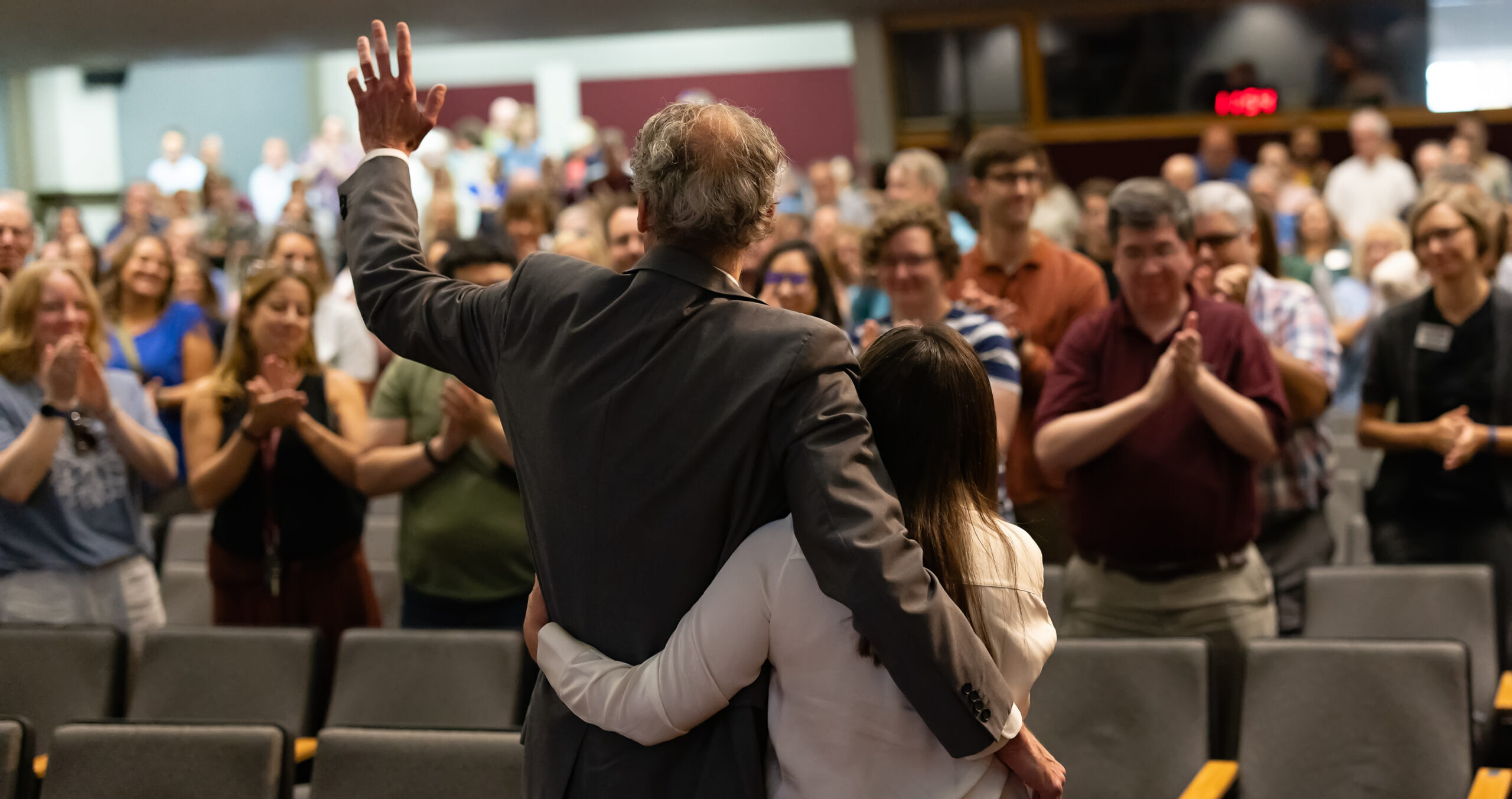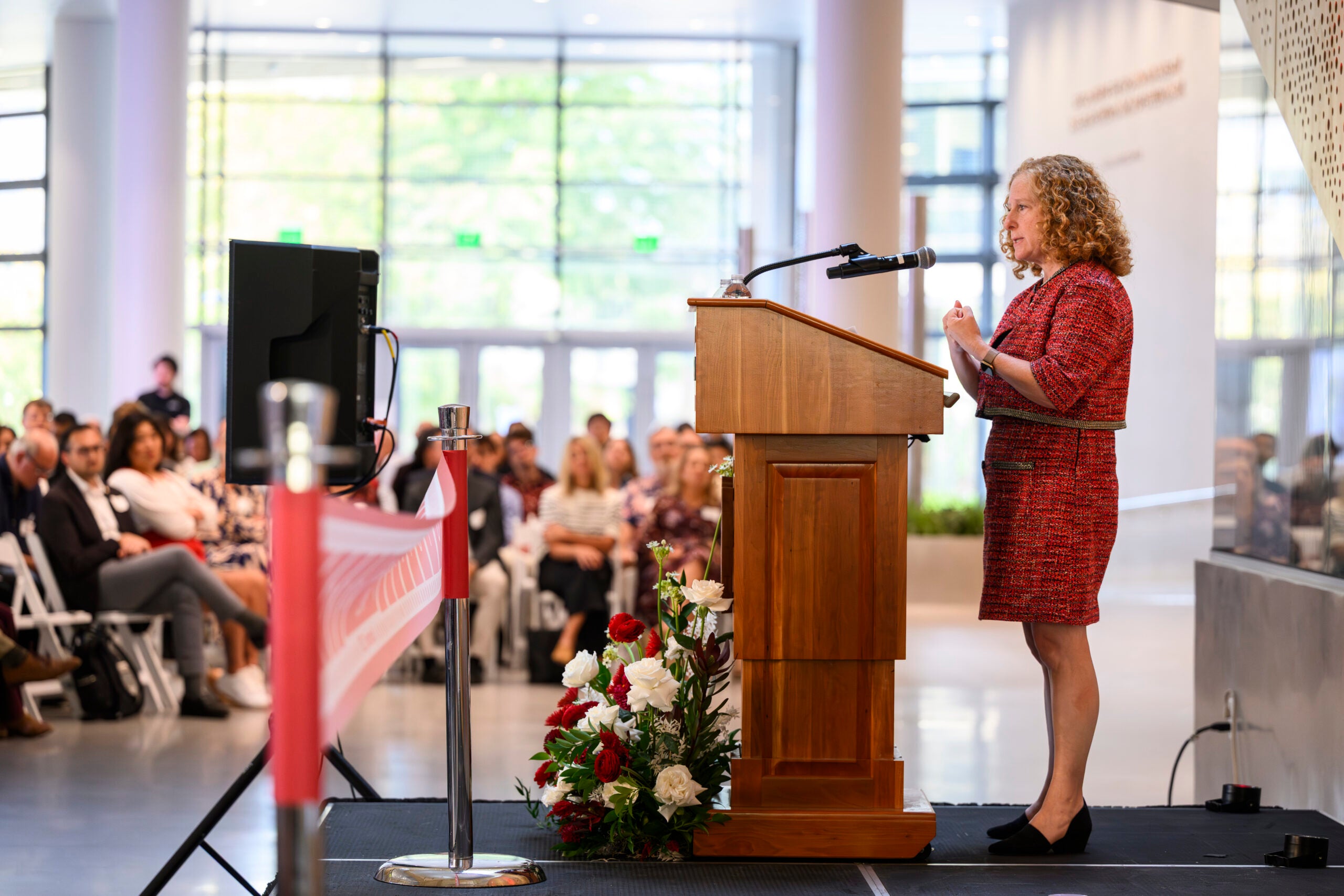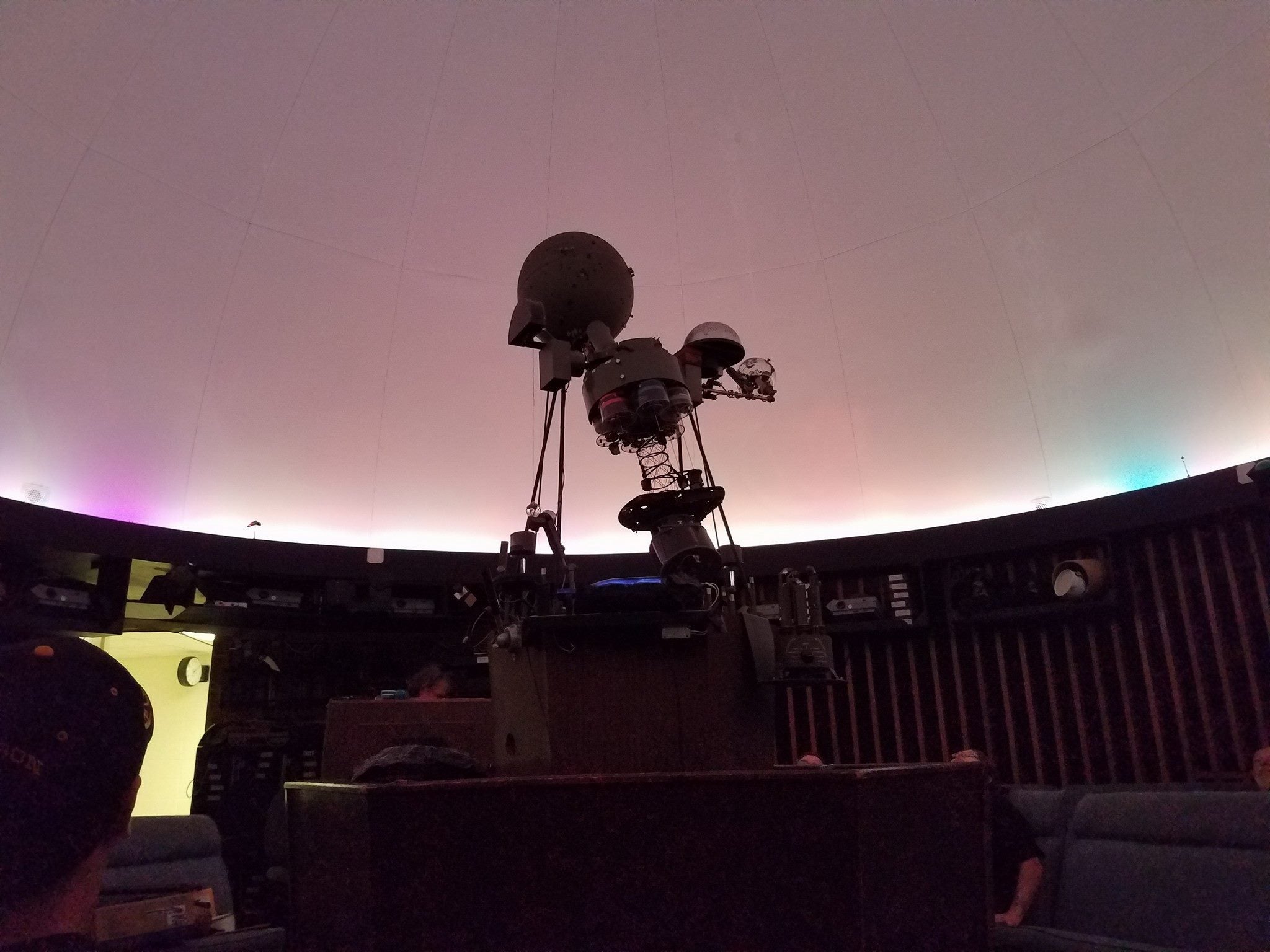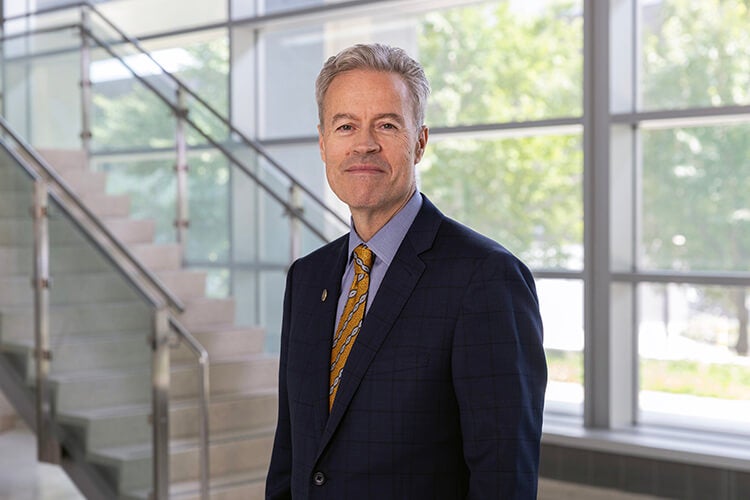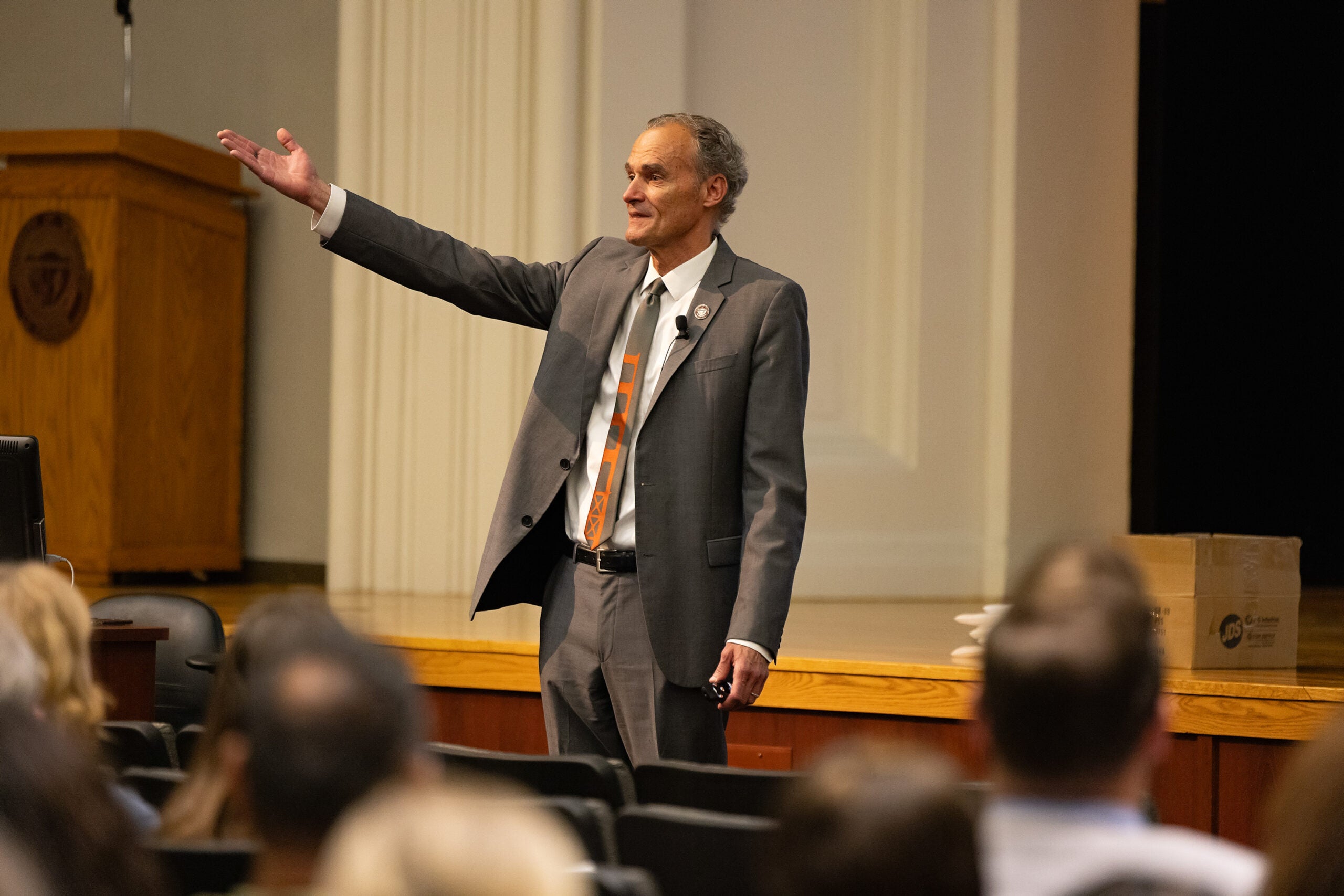A faculty panel at the University of Wisconsin-La Crosse convened earlier this week to hear arguments about whether former Chancellor Joe Gow should lose his tenured professor position.
Last year, the Universities of Wisconsin Board of Regents fired Gow from his position as chancellor after it came to light that he’d been making sex videos with his wife and others and sharing them online.
Gow was quickly removed as chancellor, but he is still employed by the university as a professor in the communication studies department. The university has now charged Gow with 21 violations of university policy, including misuse of university computers and insubordination.
News with a little more humanity
WPR’s “Wisconsin Today” newsletter keeps you connected to the state you love without feeling overwhelmed. No paywall. No agenda. No corporate filter.
Sex historian and journalist Hallie Lieberman, who received her doctorate from UW-Madison, has been following the story closely. She worries if Gow is dismissed for sexual activities he pursued in his free time, it will set a dangerous precedent to fire professors for saying and doing things the public doesn’t like.
“When they go after porn and sex, it’s low-hanging fruit. What comes next?” she said. “Freedom of speech is for the speech we hate, it’s for the thought we hate.”
Lieberman spoke with WPR’s “Wisconsin Today” about Gow’s case and what it says about the generational divide on sex and pornography.
The following has been edited for clarity and brevity.
Rob Ferrett: You interviewed professor Joe Gow and you’ve been following the hearings this week. What has stood out for you in this set of hearings? It’s getting a lot more attention than your average faculty meeting.
Hallie Lieberman: It’s much, much more interesting than the average faculty meeting.
But what has stood out to me is that the case does not seem very strong. They really are focusing on him being insubordinate, which is kind of a meta way of looking at it. They can’t really fire him for making porn videos, so they’re trying to get around it by saying he’s insubordinate.
RF: When this broke last year, it attracted national and even some international attention. Why do you think this story went so viral on the internet? Is this just a “sex sells” situation or is something else going on here?
HL: First off, sex is going to bring attention. A chancellor having sex in porn videos — that’s clickbait media gold. But that’s just the Trojan horse that gets to the bigger issue here, which is about tenure and higher ed, which I think is making people stay interested in the story.
Tenure protections are weakening across the country, and firing a professor for what they do in their free time — which is what (the university is) trying to do here (with Gow) — and not for anything they’re doing in the classroom is a scary thing to a lot of people.
RF: The university is arguing that there is reputational damage from Gow’s participation in this online pornography. That was why he was removed as chancellor — the idea that this is the leading face of the university. Could the same argument be made for him remaining on campus as a professor?
HL: Well, they’re trying to make that argument. And I mean, it makes sense. If you’re chancellor, you are the public face of the university, so (you can be removed) if you’re doing porn videos.
But reputational damage as a professor, that’s a different thing. Lots of professors study and write about unpopular things. If you could argue that what they do causes reputational damage, you could fire a lot of professors. So I don’t see it as a strong argument.

RF: The university is saying it would be a disruption now to have Gow still teaching classes, to be part of teaching and the university community. It was brought up that students might ask him in class about his porn activities, and he said, “Yes, I would answer those questions.” Is there a case to be made here that, well, that doesn’t make for a very effective classroom?
HL: I would actually make the opposite case because I’ve taught on University of Wisconsin campuses and I’ve been a student. And I would argue that it would make for a much more interesting classroom.
I was on campus reporting the story at UW-La Crosse, and I asked about a dozen students, “What do you think?” Some of them said, “Hey, I want to take class with Gow. I hope he’s teaching.” Some of them said, “I don’t care either way. My friends are on OnlyFans. It’s not a big deal.” And there was (at least) one person who was like, “Yeah, I wouldn’t take a class with him, but I don’t care if he’s on campus.”
RF: As you watch the media conversation about all this, what does it say about what we think about sex and porn in our society these days?
HL: That’s the most fascinating part to me, because we’re so divided on (sex) in a generational way. There are a lot of people who just see the word “porn” and they envision the worst — that the industry is exploiting everyone on set. Then you have other people, usually younger people, who understand the industry a little bit more. (They might say), “So what they were in these videos, did it hurt anyone? No. Did everyone get consent? Yes. OK, well, we’re not worried about it. Let’s move on.”
So you see this big divide. And I think a lot of the misunderstanding is just that people aren’t educated about ethics in the porn industry.
Wisconsin Public Radio, © Copyright 2025, Board of Regents of the University of Wisconsin System and Wisconsin Educational Communications Board.

